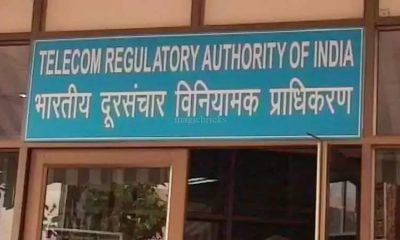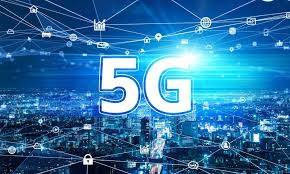Mobile Services
TRAI’s decision on in-flight Wi-Fi will increase revenue for airlines: Honeywell Aerospace
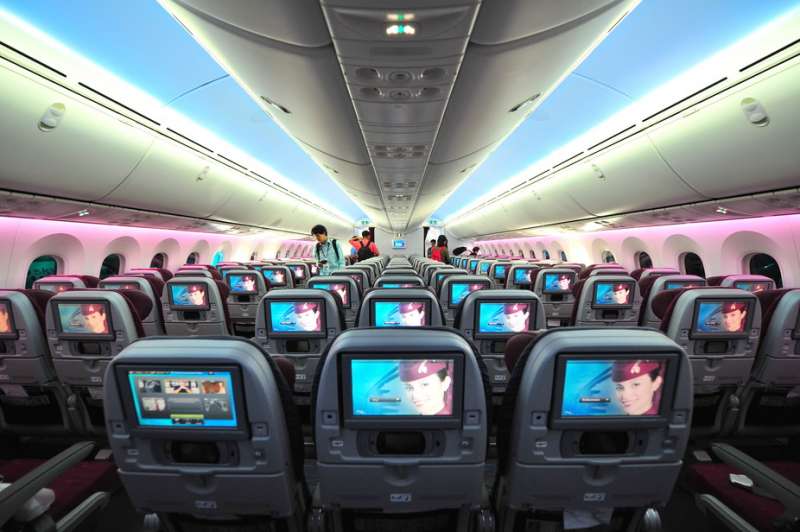
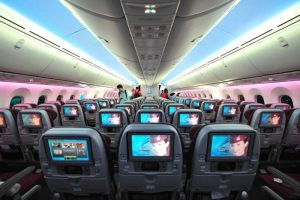 NEW DELHI:The TRAI’s decision to permit in-flight Wi-Fi on domestic and international flights is a welcome one and a groundbreaking step for the aviation market, said Neelu Khatri, president, Honeywell Aerospace, India.
NEW DELHI:The TRAI’s decision to permit in-flight Wi-Fi on domestic and international flights is a welcome one and a groundbreaking step for the aviation market, said Neelu Khatri, president, Honeywell Aerospace, India.
The Telecom Regulatory Authority of India (TRAI) has suggested a minimum height restriction of 3,000 metres for mobile communication. A flight generally attains the altitude of 3,000 metres about four-five minutes after take-off.
“Internet services through onboard Wi-Fi should be made available only when electronic devices are permitted to be used only in flight or airplane mode, an announcement regarding this should be made when boarding is over and the aircraft is about to taxi,” said regulator in its Recommendations on ‘In-Flight Connectivity’.
“It would ensure that there is no encroachment on the scope of terrestrial Internet service provided by telecom service providers as well as practically there won’t be any appreciable discontinuity in the provisioning of Internet services to the fliers,” said TRAI.
According to the International Air Transport Association, India will become the world’s third largest commercial aviation market by 2025, with an estimated increase to 278 million annual passengers. This level of growth will require the Indian aviation market to be proactive in meeting the needs of its growing number of passengers, airlines and flight crews.
“Honeywell Aerospace offers solutions that provide a reliable and consistent in-flight connectivity experience to airline passengers and flight crews globally. Collaborating with industry leader, Inmarsat, Honeywell’s JetWave is the exclusive hardware enabling users to connect to Inmarsat’s GX Aviation high-speed aviation broadband service,” said Khatri.

Neelu Khatri
“This technology gives passengers, pilots and ground personnel access to high-speed, consistent and reliable broadband service worldwide so they can appreciate the true benefits of an aircraft that is consistently connected to Wi-Fi. Inflight connectivity gives pilots real-time information to avoid hazardous flying conditions by planning and altering their routes. For ground crew, the maintenance offered on a connected aircraft means that aircraft parts could be repaired or replaced as soon as the need is identified by the system. And finally, passengers can reliably conduct business or stay in touch with friends and family while they are in the air,” she said.
“Passenger feedback has shown Wi-Fi is becoming an expectation and is more important than other in-flight comforts — even food. The TRAI’s new recommendations for in-flight connectivity will increase the potential for additional revenue for airlines, while meeting traveler demand for greater inflight connectivity,” added Khatri.
“The aerospace industry is experiencing a digital transformation, and Honeywell is leading the way. With more than 100 years of experience providing aircraft technology, Honeywell knows how to integrate aircraft hardware and software to enhance the flight experience, which is why the company remains at the forefront in Connected Aircraft solutions,” she said.
After analysing the comments received from stakeholders during the consultation and the open house discussions, TRAI has finalized its recommendation on ‘In-Flight Connectivity’. The highlights of the recommendations are as follows:
a)Both, Internet and MCA service should be permitted as In-Flight Connectivity (IFC)in the Indian airspace.
b)The operation of MCA services should be permitted with minimum height restriction of 3000 meters in Indian airspace for its compatibility with terrestrial mobile networks.
c)Internet Services through Wi-Fi onboard should be made available when electronic devices are permitted to use only in flight/ airplane mode.
d)A separate category of “IFC Service Provider” should be created to permit IFC services in Indian airspace. The IFC service provider should be required to get itself registered with the DoT and it need not necessarily be in Indian entity.
e)The IFC service provider be permitted to provide IFC services, after entering into an arrangement with Unified Licensee having appropriate authorization. –
f)If IFC service provider partners with Unified Licensee having Internet Service (Category ‘A’) authorization for the provision of Internet services onboard as part of IFC, then (i) If the licensee also has the Commercial VSAT CUG service authorization, it can provide the satellite links also. Alternatively, (ii) Unified Licensee with National Long Distance (NLD)service authorization can provide the satellite links.
g)The regulatory requirements should be same for both Indian registered and foreign registered airlines for offering IFC services in Indian airspace.
h)The deployment of a gateway in India provides an effective mechanism to lawfully intercept and monitor the in-cabin internet traffic while the aircraft is in Indian airspace. Therefore, the onboard Internet traffic must be routed to a Satellite Gateway on Indian soil. Such an obligation should be imposed regardless of whether the satellite in question is an Indian Satellite System or not.
i)The IFC service provider should be permitted to use either INSAT systems (Indian Satellite System or foreign satellite capacity leased through DoS) or foreign satellites outside INSATsystems in the Indian airspace.
j)To promote the adoption of IFC services in Indian airspace, the IFC service provider should be imposed a flat annual Licence Fee of token amount of Rs. 1. However, the same may be reviewed and amended at a later stage, if need be.
k)Spectrum neutral approach should be adopted subject to the condition that the frequency bands have been harmonized and coordinated for their use at the ITU. It would facilitate the IFC services in all the bands (L, Ku andKa] in which IFC services are currently being provided.
1)The framework recommended for IFC services in Indian airspace should be made applicable to all types of aircrafts such as commercial airlines, business jets, executive aircrafts etc.
5g
Airtel announces its largest ever 5G roll-out in 125 cities
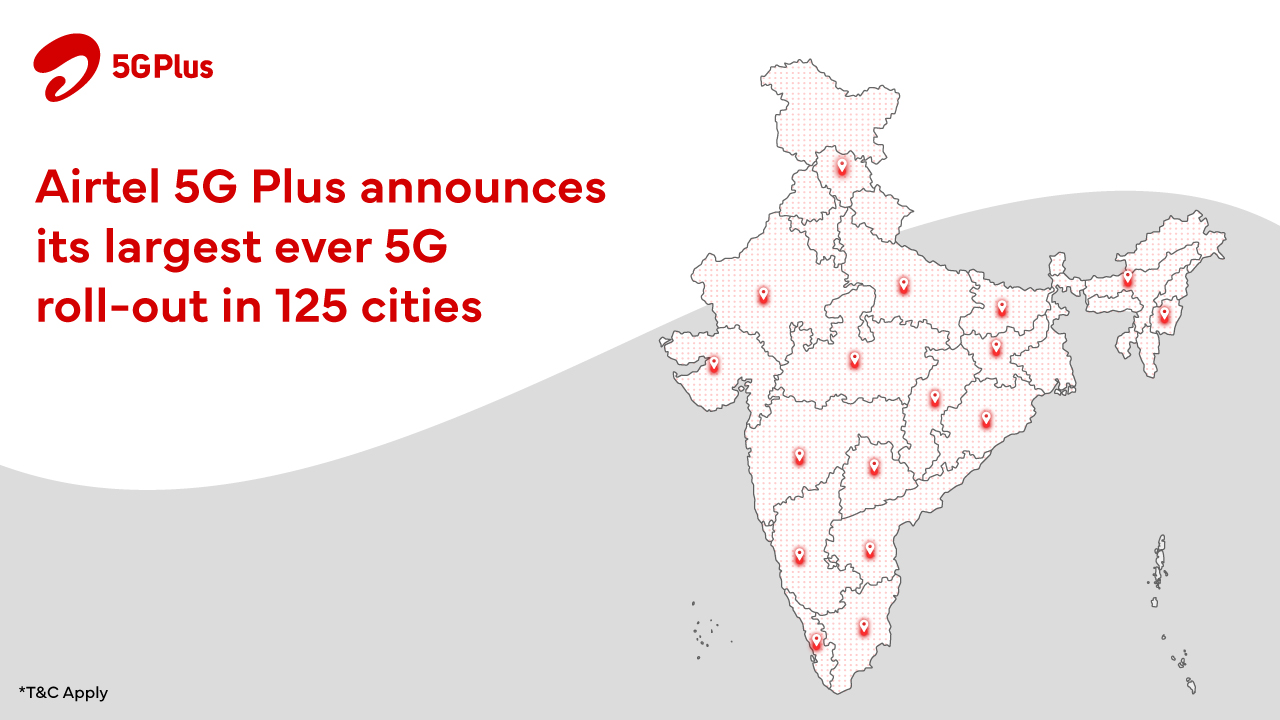
NEW DELHI: Bharti Airtel, India’s telecommunications services provider, today announced the launch of its ultra-fast 5G services in 125 cities. Airtel 5G Plus service is now available to customers in over 265 cities in the country.
Airtel 5G Plus has three compelling advantages for customers. First, it runs on a technology that has the widest acceptance in the world with the most developed ecosystem. This ensures that all 5G smartphones in India seamlessly work on the Airtel network. Second, the company promises to deliver the best experience – between 20 to 30 times higher speeds than today coupled with brilliant voice experience and super-fast call connect. Finally, Airtel 5G Plus network will also be kinder to the environment with its special power reduction solution. Powered by the reliable Airtel network infrastructure, Airtel 5G Plus will provide superfast access to High-Definition video streaming, gaming, multiple chatting, instant uploading of photos et all.
Commenting on the launch, Randeep Sekhon, CTO, Bharti Airtel said, “5G has revolutionized the world of internet, ushering new era of connectivity and communications that will prove to be a game-changer for the country. At Airtel, we remain committed to delivering the highest quality of network and service to our customers as we roll-out 125 more cities today. Airtel was the first in the country to offer 5G services in October 2022, and today’s mega launch is our promise to connect every Airtel customer in the country with ultra-fast Airtel 5G Plus. Our 5G rollout is on track to cover all towns and key rural areas by March 2024.”
Airtel 5G Plus service availability will continue to rapidly expand – including service in all towns and villages in the country soon – as the company is working towards offering nationwide coverage. Airtel is now offering its 5G services in every major city from the upper northern city of Jammu to the southern tip of Kanyakumari.
In the last one year, Airtel has demonstrated the power of 5G with a host of powerful use cases that will change the way customers lead their lives and do business. From India’s first live 5G network in Hyderabad to India’s first private 5G network at the BOSCH facility in Bengaluru to partnering with Mahindra & Mahindra to make its Chakan manufacturing facility, India’s first 5G enabled auto manufacturing unit, Airtel has been at the forefront of 5G innovation.
5g
Apple rolls out beta programme for iPhones to enable 5G services
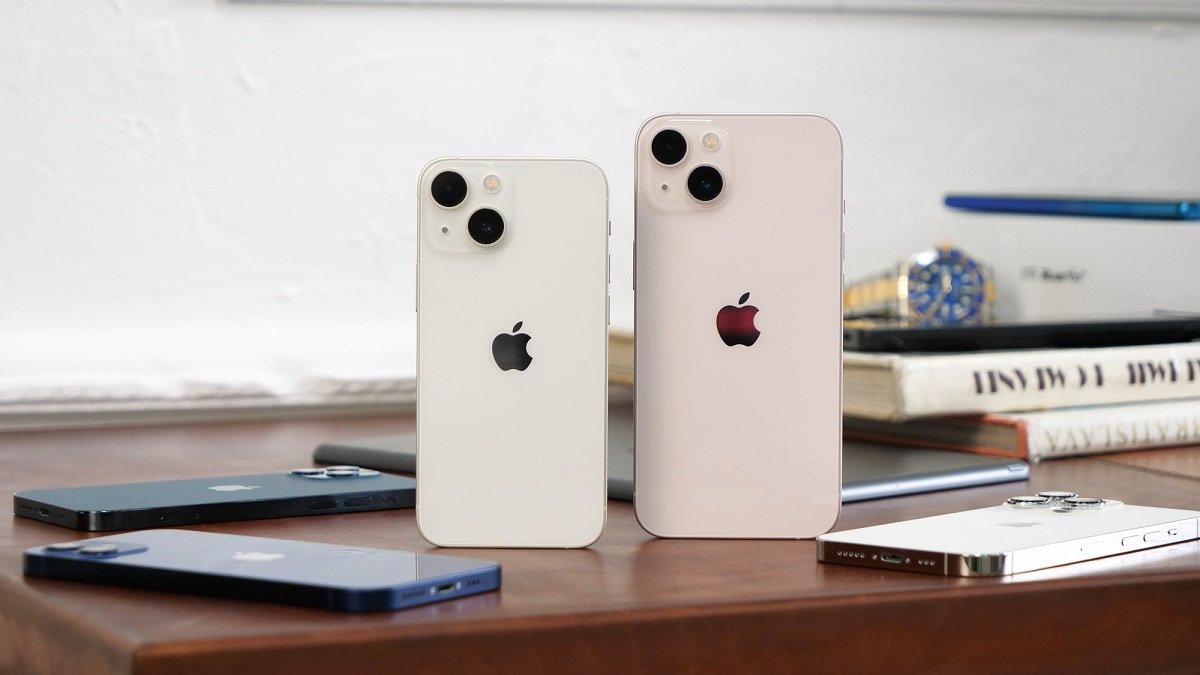
NEW DELHI: Apple Inc has rolled out a beta programme to enable 5G on Apple devices as the upgrade lets users try out pre-release software.
This software upgrade enables 5G access on Apple devices, as and when service providers Jio, Airtel and Vodafone enable 5G network access, sources said.
Apple Users have to enrol for the Beta Programme on the website, install a profile and download the software.
Jio users using iPhone 12 and above, in cities where JioTrue5G has been rolled out, will be invited to the Jio Welcome Offer. Jio Welcome Offer provides unlimited 5G data at up to 1 Gbps speed to users at no additional cost. However, there is a condition that prepaid users must be on active Rs 239 and above plan. All Postpaid users are eligible for this trial.
Airtel is not providing any special 5G offer like Jio to their users. In the cities/areas in which the Airtel 5G network has been launched, users can trial 5G services as a part of their existing plan, once they have updated the latest Apple Beta software.
While an email sent to Apple did not solicit an immediate response, the firm had last month stated: “We are working with our carrier partners in India to bring the best 5G experience to iPhone users as soon as network validation and testing for quality and performance is completed. 5G will be enabled via a software update and will start rolling out to iPhone users in December”.
Airtel and Jio customers on iPhone 14, iPhone 13, iPhone 12 and iPhone SE (3rd generation) models can experience 5G as part of Apple’s iOS 16 Beta Software Program. The Apple Beta Software Program is open to anyone with a valid Apple ID who accepts the Apple Beta Software Program Agreement during the sign-up process.
If a user has an iCloud account, that is an Apple ID, it is recommended they use that. If they do not have an iCloud account or any other Apple ID, they can create one.
Customers who want to try the beta software should back up their iPhones before installing the beta software. It is recommended to install the beta software only on non-production devices that are not business-critical. Users can also provide feedback to Apple on quality and usability, which helps Apple identify issues, fix them, and make Apple software even better.
The iOS beta comes with the built-in Feedback Assistant app, which can be opened from the Home screen on the iPhone or iPad or from the Dock on the Mac.
Source: Press Trust of India
5g
Nokia wins multi-year deal with Reliance Jio India to build one of the largest 5G networks in the world
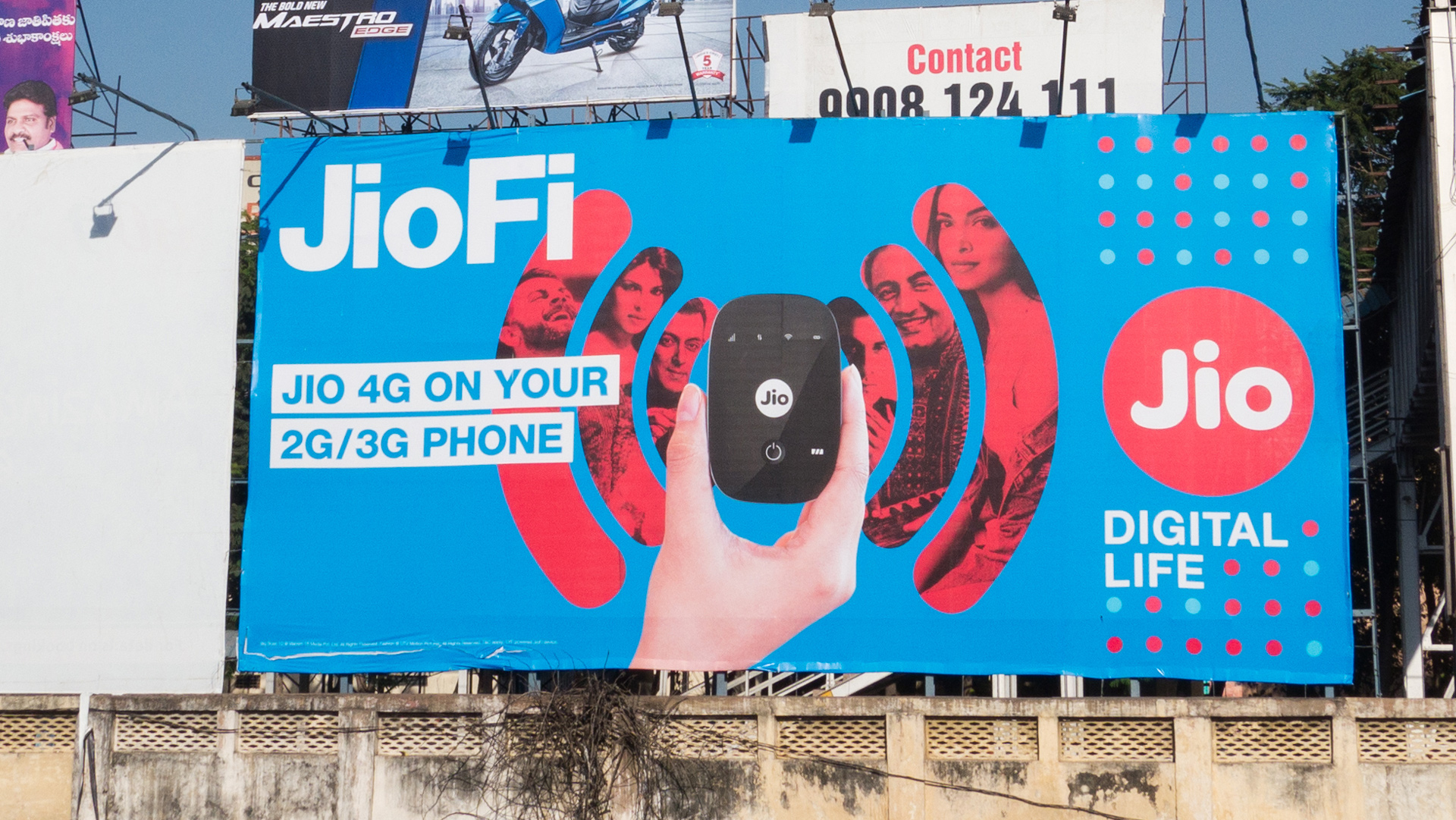
NEW DELHI: Nokia has announced that it has been selected as a major supplier by Reliance Jio to supply 5G Radio Access Network (RAN) equipment from its comprehensive AirScale portfolio countrywide in a multi-year deal. Reliance Jio is India’s number one mobile operator and has one of the largest RAN footprints in the world.
Under the contract, Nokia will supply equipment from its AirScale portfolio, including base stations, high-capacity 5G Massive MIMO antennas, and Remote Radio Heads (RRH) to support different spectrum bands, and self-organizing network software. Reliance Jio plans to deploy a 5G standalone network which will interwork with its 4G network. The network will enable Reliance Jio to deliver advanced 5G services such as massive machine-to-machine communications, network slicing, and ultra-low-latency.
Akash Ambani, Chairman Reliance Jio, commented: “We are pleased to be working with Nokia for our 5G SA deployment in India. Jio is committed to continuously investing in the latest network technologies to enhance the experience of all of its customers. We are confident that our partnership with Nokia will deliver one of the most advanced 5G networks globally.”
Pekka Lundmark, President and CEO at Nokia stated: “This is a significant win for Nokia in an important market and a new customer with one of the largest RAN footprints in the world. This ambitious project will introduce millions of people across India to premium 5G services, enabled by our industry-leading AirScale portfolio. We are proud that Reliance Jio has placed its trust in our technology and we look forward to a long and productive partnership with them.”
Nokia has a long-standing presence in India. This new deal will mean that Nokia is now supplying India’s three largest mobile operators.



